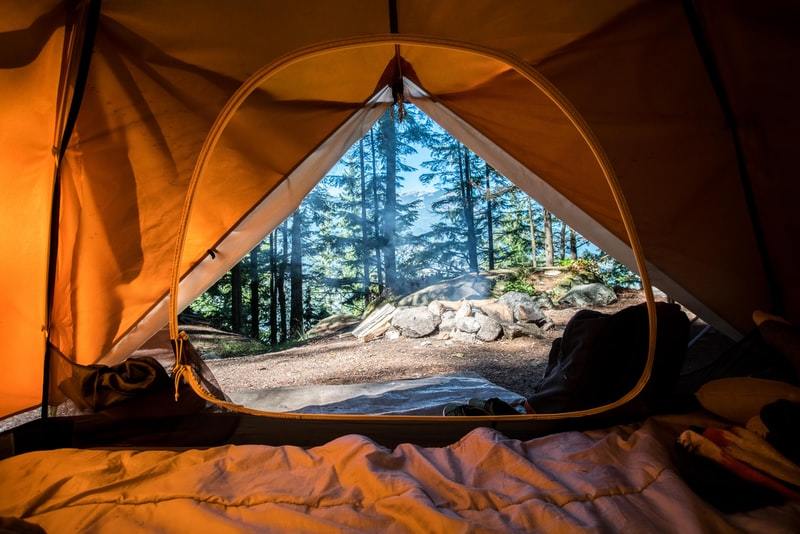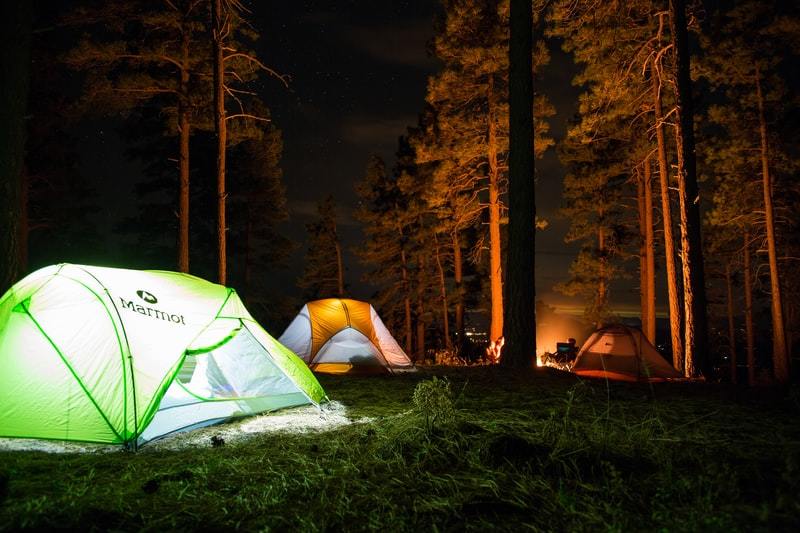
During our first invite for a hike, we admit to buying the first tent we saw that actually fits the budget. The same applies to all other camping gear we bought. It is only until you build a relationship with hiking and camping that you get to appreciate the value of a good camping tent. To help you skip the trial and error process, we created this camping tent buying guide. It will help you look beyond the price and size of camping tents and actually focus on features that will keep you comfortable and secured during the whole camping duration.
What are the features of a good camping tent?

- Easy to pitch
Being easy to set up is more important if you are camping alone or with a friend but not the whole family. This is why it is important for one person to be able to pitch the tent within minutes upon arriving at the campsite without having any difficulty in identifying where every pole should go and which way they should face, etc. Pitching may also include getting rid of all extra accessories such as pegs, ropes and stakes attached to tent bag for easier transportation during travel time.
- Keeps you dry from rain and water splashes
Featuring waterproof materials gives you peace of mind that your items inside won’t get damaged by water no matter how bad it rains outside during your camping trip. A lot of tents will claim this feature only to leave you soaked with dew or raindrops the following day. It’s not enough that the tent is made from water-repellent fabric, the stitching should be waterproof, as well.
- Ventilation during a camping trip
There are times in your camping trip that you need to sleep under the stars despite the high temperature during summertime. It’s not enough for a tent to feature mesh on its ceiling to cool down the air inside. The walls should also be made with mesh so hot air can easily escape instead of building up against your body when you end up tossing or turning because of uncomfortable heat while sleeping. Moreover, ventilation is important to prevent carbon dioxide buildup . Carbon dioxide builds up inside closed spaces like car interiors or tents so ventilation can help clear out this poisonous gas.
- Lightweight and Portable
Although weight is a minor factor when choosing a good camping tent, you can’t deny its importance in selecting an ideal one for your next trip, especially if it includes long hikes. It’s also best to find something that is portable enough that matches your current camping bag. You wouldn’t want to be carrying your tent by hand just because it is not backpacking friendly.
- Easy to clean
Your tent is bound to get dirty after a few camping trips, and you want it to be cleaned easily. It would be ideal if your tent can be washed using soap or detergent and rinsed quickly to prevent the dirt from building up. Ideally, these steps should only take less than 10 minutes in your bathroom sink.
Camping Tents for Beginners
An ideal choice for first-time campers and backpackers is a tent that has wide space inside and comes with a rainfly so users will never have to worry about rain or other natural hazards during their trips because they already have protection against these problems. It features durable materials made from polyester fabric and extendable poles which make it easy to pitch, even by first-time campers. If you have a bigger budget, you can also go for the more innovative tents which make pitching and packing-up easier with their new poles and accessories.
Last Updated on
- Exhaust fan vs Ventilation Fan - September 20, 2022
- Can a Standing Fan Work Without Capacitor - September 16, 2022
- Table Fan vs Stand Fan - September 13, 2022
